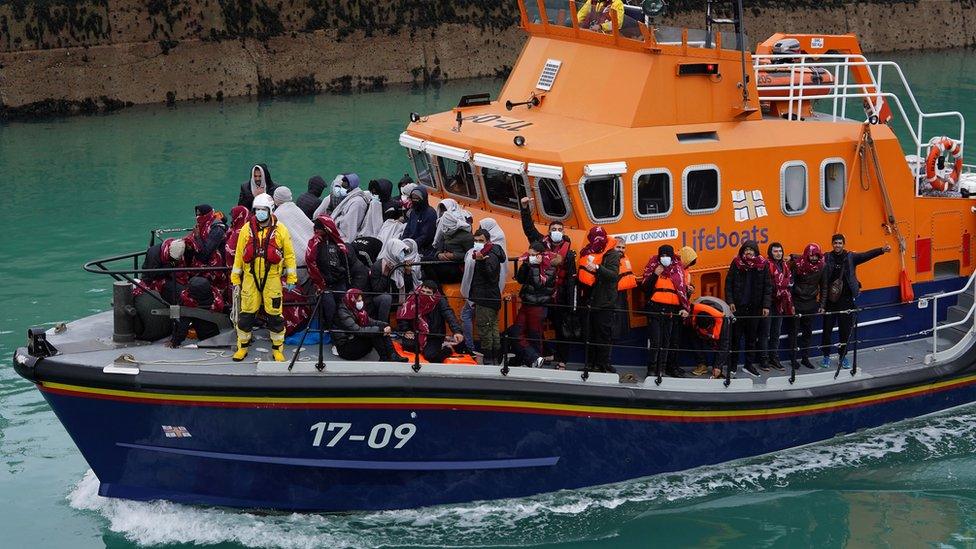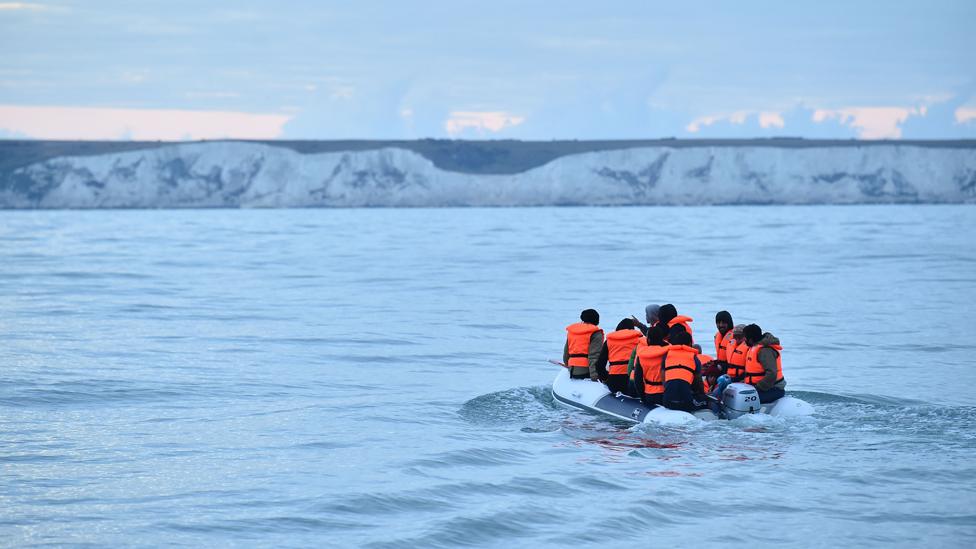Migrant crossings: Minister to lead review after record journey numbers
- Published
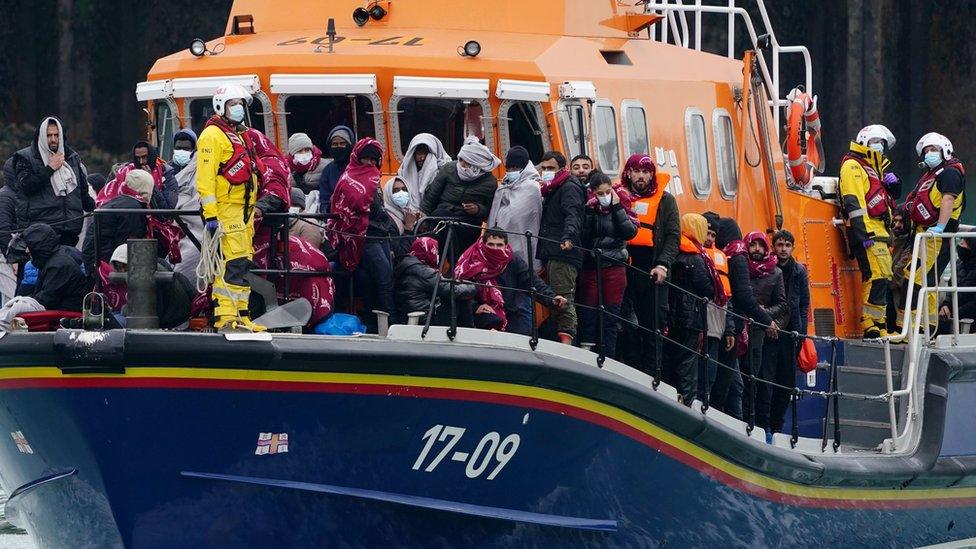
A review into how to prevent migrants crossing the English Channel to the UK is to be led by Cabinet Office minister Stephen Barclay.
It comes amid record numbers of people making the journey this year, with more than 1,000 crossing in a single day earlier this month.
Home Secretary Priti Patel has promised tougher action but numbers have continued to rise.
It is understood Prime Minister Boris Johnson thinks more action is needed.
Mr Barclay will be responsible for exploring what ministerial departments can do in an effort to make the issue more of a priority in government and the civil service.
More than 24,700 people have made the crossing from France to the UK by boat so far this year - almost three times the total of about 8,500 in 2020.
Only five people have been returned to the EU so far this year.
More groups of people, including children, arrived in Kent on Saturday.
The numbers arriving in the latest crossings have not yet been provided by the Home Office.
In an agreement signed in July, the UK pledged to give France €62.7m (£54m) during 2021-22 to help tackle the issue.
The deal said the UK would help France increase police patrols along its coastline, boost aerial surveillance and increase security infrastructure at ports but record numbers of people have continued to arrive.
Conservative MP Tim Loughton, a member of the Commons home affairs select committee, said France should be doing more to intercept boats.
He told BBC Radio 4's Today programme: "We know the only real solution is for the French to do what they are legally entitled but also legally obliged to do and that's to intercept the boats when they're in the water and take the passengers back to French territory."
Mr Loughton said it was "absolutely within the power of the French to stop this miserable trade".
But Dimitris Avramopoulos, a former minister of foreign affairs for Greece and EU commissioner for migration, urged the UK and France not to blame each other and instead work together and with the European Union to secure a deal.
He told Today: "It is not easy to cope with the situation by blaming the other. I think they should immediately deepen co-operation in a spirit of mutual trust and basing their policy on the same principles."


For some time now, the government has talked tough on the idea of cracking down on small boats crossing the Channel.
Ministers believe people smugglers are exploiting people who want to come to the UK to claim asylum or start a new life.
Deals have been signed with France to try to deter people from making the journey in the first place.
But measures so far haven't worked - this year has seen a record number of people making the dangerous journey.
That's left many Conservative MPs worried and Labour criticising the government for failing to bring numbers down.
The prime minister is said to want more action. But a review of what can be done cross-government won't itself solve this issue which has troubled the Home Office for years.

The Daily Telegraph, external reported Ms Patel was planning to introduce strict new rules for asylum seekers, similar to those in Greece.
The paper said the home secretary was impressed with centres being built in Greece, where migrants are put under strict curfews and face routine checks on their movements.
But Mr Avramopoulos said the situation in the UK was different because its maritime borders with France are "very complex".
On Friday, Labour leader Sir Keir Starmer accused the government of failing to deliver on its pledges to reduce migrant Channel crossings.
He said the UK had not secured "strong" agreements with France to prevent journeys from taking place.
The Times reported, external that Conservative MPs have warned the prime minister the extent of crossings risked becoming a big electoral issue for the party.
Ms Patel this week said the EU's open borders regime was partly to blame.
She told reporters during a visit to the United States that she was "constantly pressing" the French on the issue but they were "overwhelmed".
"Let's not forget that the real problem on illegal migration flows is the EU has no border protections whatsoever," Ms Patel said.
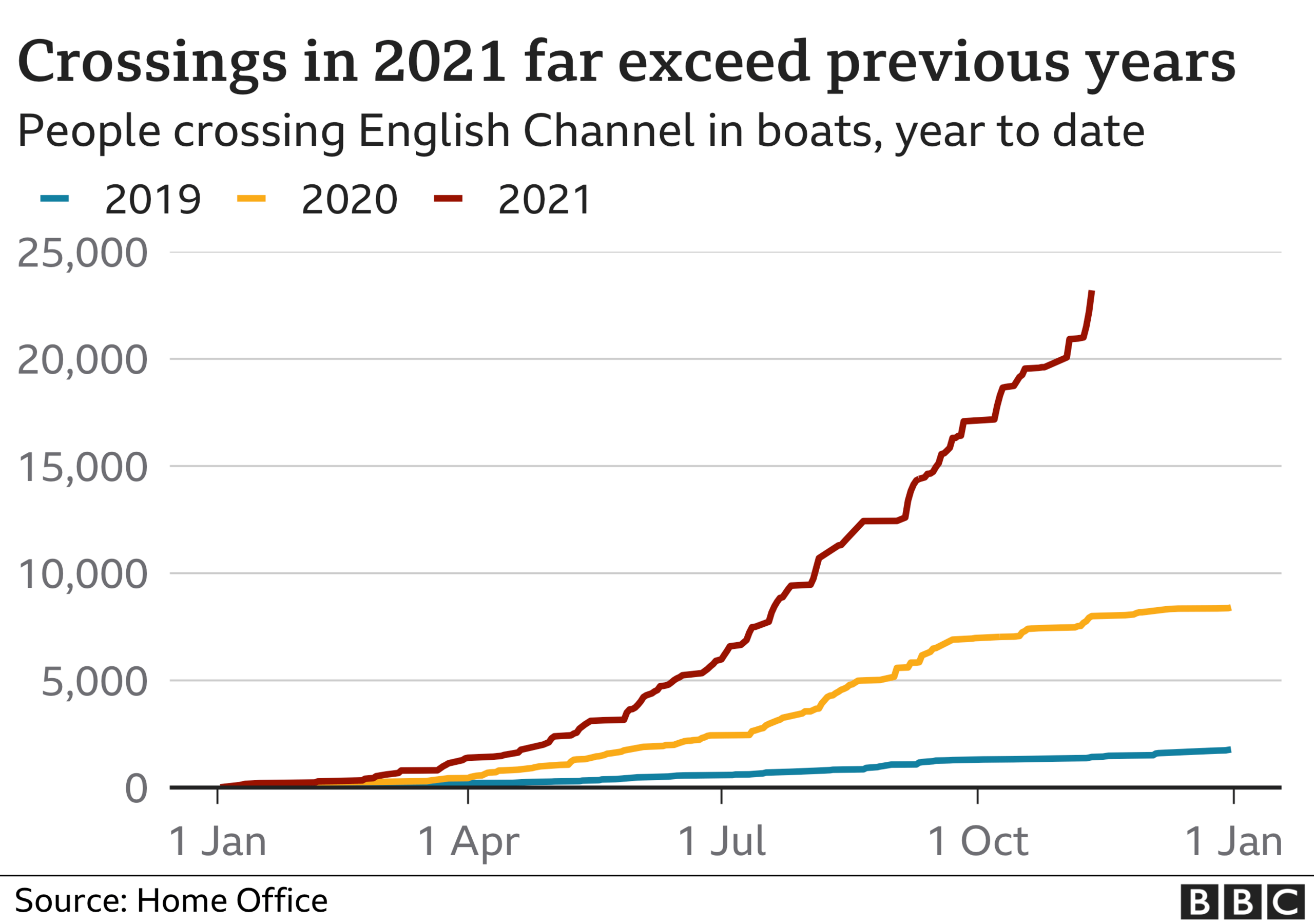

BANISH YOUR BRAIN FOG: Quick tips to boost energy this winter!
HOW 'BRITISH' IS BRITISH TV? The role of public service broadcasters with the influx of US programmes

Related topics
- Published13 December 2023
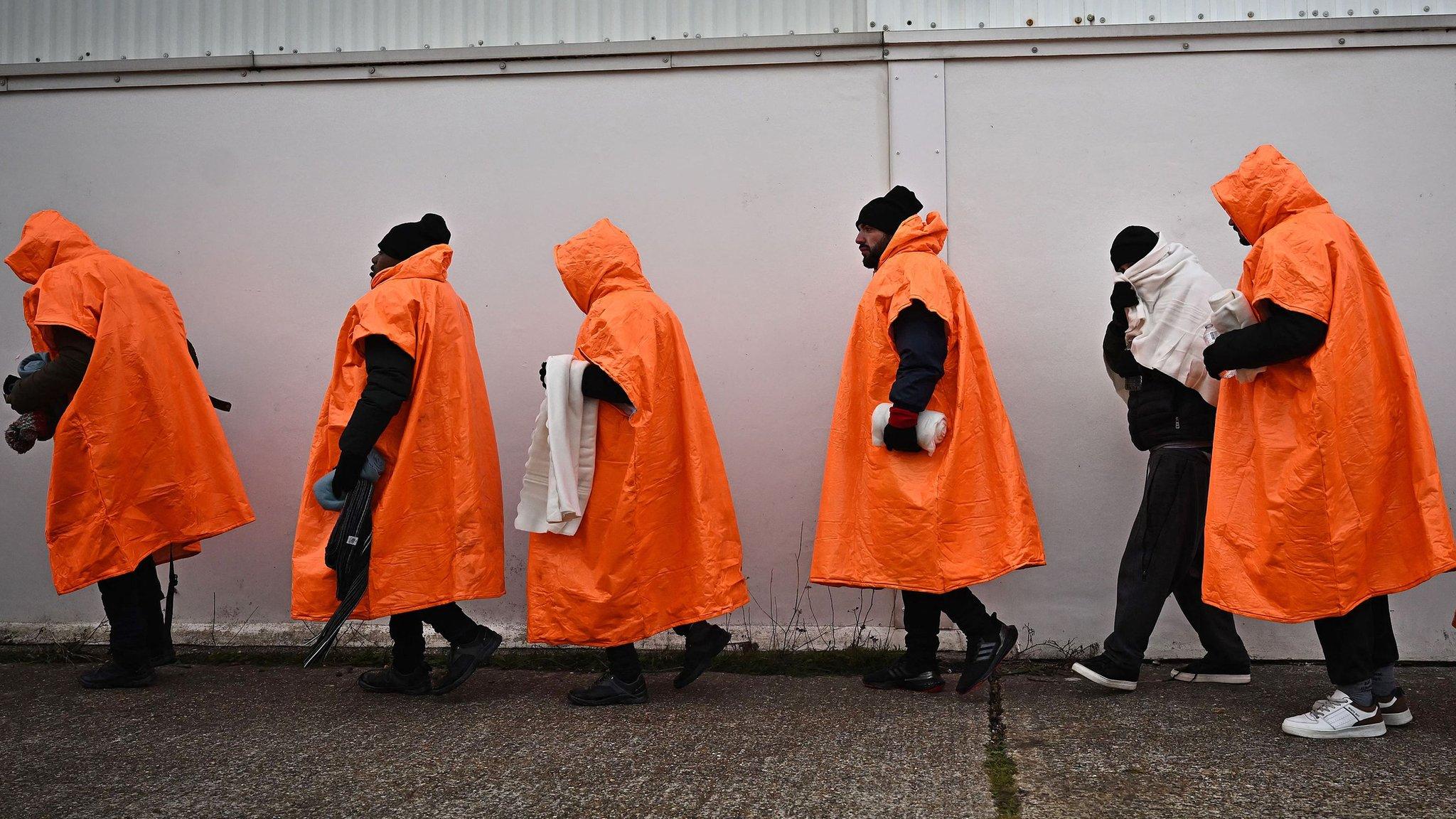
- Published10 November 2021
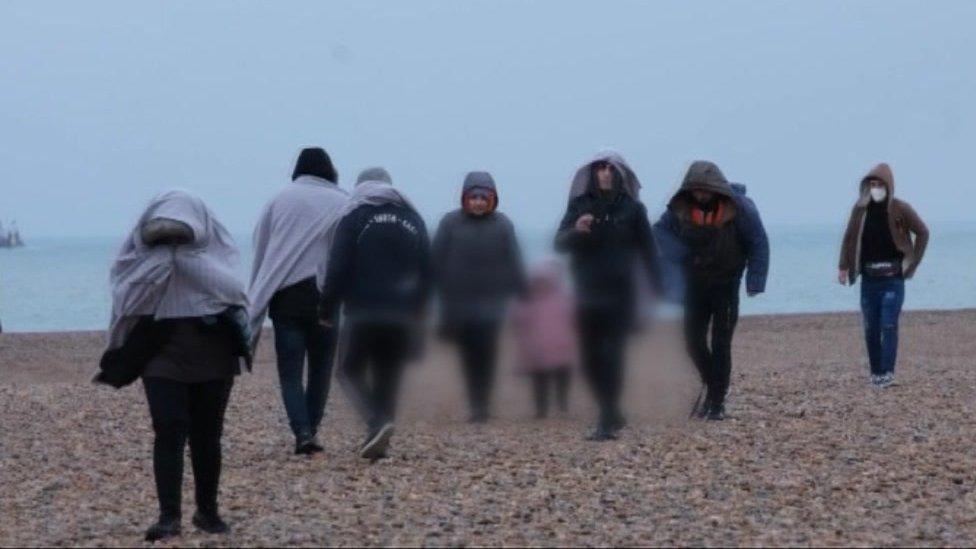
- Published17 November 2021
